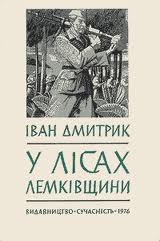Анна-Марі Слотер - Між двох вогнів. Чому ми досі обираємо між роботою та сім’єю
Шрифт:
Інтервал:
Добавити в закладку:
143
Alison Wolf, The XX Factor: How the Rise of Working Women Has Created a Far Less Equal World (New York: Crown Publishers, 2013), eBook, pp. 17—18.
144
Sarah Blaffer Hrdy, «The Past, Present and Future of the Human Family,» Tanner Lectures on Human Values, delivered at the University of Utah, February 27 and 28, 2001, tannerlectures.utah.edu/_documents/a-to-z/h/Hrdy_02.pdf.
145
Pamela Stone, Opting Out? Why Women Really Quit Careers and Head Home (Berkeley: University of California Press, 2007), p. 145.
146
«Single Motherhood in the United States—A Snapshot,» Legal Momentum, Women’s Legal Defense and Education Fund, 2012, legalmomentum.org/sites/default/ les/ reports/single-mothers-snapshot_0.pdf.
147
у Timothy Casey and Laurie Maldonado, «Worst Off—Single Parent Families in the United States: A Cross-National Comparison of Single Parenthood in the U.S. and 16 Other High Income Countries,» Legal Momentum, Women’s Legal Defense and Education Fund, December 2012, legalmomentum.org/sites/default/ les/reports/worst-off-single-parent.pdf; Matt Bruenig, «The Poorest Norwegian Children Are Twice as Rich as the Poorest American Children,» Demos: An Equal Say and An Equal Chance for All, January 12, 2015, demos.org/blog/1/12/15/poorest-norwegian-children-are-twice-rich-poorest-american-children.
148
Terrie Morgan-Besecker, «Minimum Wage Earners Struggle to Survive,» Times-Tribune, December 22, 2013, thetimes-tribune.com/news/minimum-wage-earners-struggle-to-survive-1.1605234.
149
Ajay Chaudry, Juan Pedroza, and Heather Sandstrom, «How Employment Constraints Affect Low-Income Working Parents’ Child Care Decisions,» Urban Institute, Brief 23, February 2012, urban.org/ UploadedPDF/412513-How-Employment-Constraints-Affect-Low-Income-Working-Parents-Child-Care-Decisions.pdf.
150
«1996 Welfare Amendments,» Social Security History, ssa.gov/history/tally1996 .html; Mary B. Larner, Donna L. Terman, and Richard E. Behrman, «Welfare to Work: Analysis and Recommendations,» The Future of Children 7, no. 1 (Spring 1997), futureofchildren.org/ futureofchildren/publications/docs/07_01_Analysis.pdf; Mary Daly and Joyce Kwok, «Did Welfare Reform Work for Everyone? A Look at Young Single Mothers,» Federal Reserve Bank of San Francisco Economic Letter, August 3, 2009, frbsf.org/economic-research/publications/economic-letter/2009/august/welfare-reform-single-mothers.
151
у Joan Entmacher, Katherine Gallagher Robbins, Julie Voghtman, and Lauren Frohlich, «Insecure & Unequal: Poverty and Income Among Women and Families 2000—2012,» National Women’s Law Center, September 2013, nwlc.org/sites/default/ les/pdfs/ nal_2013_nwlc_povertyreport.pdf; Casey and Maldonado, «Worst Off.»
152
Elizabeth Warren and Amelia Warren Tyagi, The Two-Income Trap: Why Middle-Class Mothers and Fathers Are Going Broke (New York: Basic, 2003), pp. 97—122.
153
Ann Crittenden, The Price of Motherhood: Why the Most Important Job in the World Is Still the Least Valued (New York: Henry Holt, 2001), p. 6.
154
Gloria Steinem, » ‘Women’s Liberation’ Aims to Free Men Too,» Washington Post, June 7, 1970.
155
Alice Walker, In Search of Our Mothers’ Gardens: Womanist Prose (San Diego: Harcourt Brace Jovanovich, 1983); Patricia Hill Collins, «What’s in a Name? Womanism, Black Feminism, and Beyond,» Black Scholar 26, no. 1 (Winter/Spring 1996): 9—17.
156
Catherine Rottenberg, «Hijacking Feminism,» Al Jazeera, March 25, 2013, aljazeera.com/indepth/ opinion/2013/03/201332510121757700.html.
157
Catherine Rottenberg, «Happiness and the Liberal Imagination: How Superwoman Became Balanced,» Feminist Studies 40, no. 1 (2014), bgu.ac.il/rottenbe/ FeministStudies40-1-Rottenberg.pdf.
158
Susan Faludi, «Feminism for Them?,» The Baf er, no. 24 (2014), thebaf er.com/past/feminism forthem.
159
Email to AnneMarie Slaughter, August 10, 2012.
160
Riane Eisler and Kimberly Otis, «Unpaid and Undervalued Care Work Keeps Women on the Brink,» The Shriver Report, January 22, 2014, shriverreport.org/ unpaid-and-undervalued-care-work-keeps-women-on-the-brink/ #_edn2.
161
Nancy Folbre, «The Pauperization of Mothers: Patriarchy and Public Policy in the United States,» Review of Radical Political Economics, 16, no. 4 (1985): 72—88.
162
Nancy Folbre, ed., For Love and Money: Care Provision in the United States (New York: Russell Sage Foundation, 2012), p. xiv.
163
Michelle Budig and Melissa Hodges, «Differences in Disadvantage: How the Wage Penalty for Motherhood Varies Across Women’s Earnings Distribution,» American Sociological Review 75, no. 5 (2010): 705—28; Michelle Budig, «The Fatherhood Bonus and the Motherhood Penalty,» Third Way Next, 2013, content.thirdway .org/publications/853/NEXT_-_Fatherhood_Motherhood.pdf.
164
Warren and Tyagi, The Two-Income Trap, p. 59.
165
імейл від Річарда Фрая/ Гретхен Лівінгстон з Pew Research до Анни-Марі Слотер, 24 червня 2014.
166
Hanna Rosin, The End of Men (New York: Riverhead Books, 2012), pp. 4—5.
167
Там же, с.85. Liza Mundy, The Richer Sex, pp. 62—68.
168
«Male Nurses Becoming More Commonplace, Census Bureau Reports,» United States Census Bureau, February 25, 2013, census.gov/newsroom/ press-releases/2013/cb13-32.html.
169
Lonnae O’Neal Parker, «Four Years Later, Feminists Split by Michelle Obama’s ‘Work’ as First Lady,» Washington Post, January 18, 2013, washingtonpost.com/lifestyle/style/feminists-split-by-michelle-obamas-work-as-rst-lady/2013/01/18/be3d636e-5e5e-11e2-9940-6fc488f3fecd_story.html.
170
Taigi Smith, «What Happens When Your Hood Is the Last Stop,» in Daisy Hernández and Bushra Rehman, eds., Colonize This! Young Women of Color on Today’s Feminism (New York: Seal, 2002), pp. 54—64.
171
Mary Helen Washington, ed., Invented Lives: Narratives of Black Women 1860—1960 (Garden City, NY: Anchor, 1987), p. 395.
172
Alice Walker, «One Child of One’s Own: A Meaningful Digression Within the Work(s),» Ms., August 1979, p. 75.
173
Kate Bolick, «Single People Deserve WorkLife Balance, Too,» Atlantic, June 28, 2012.
174
імейл до Анни-Марі Слотер, 24 червня 2012.
175
Folbre, For Love and Money, p. xi.
176
«Ai-jen Poo,» National Domestic Workers Alliance, domesticworkers.org/ aijen-poo.
177
«Domestic Workers’ Bill of Rights,» New York State Department of Labor, labor.ny.gov/legal/domesticworkers-bill-of-rights.shtm.
178
Ai-jen Poo, with Ariane Conrad, The Age of Dignity: Preparing for the Elder Boom in a Changing America (New York: New Press, 2015), p. 115.
179
Atul Gawande, Being Mortal (New York: Henry Holt, 2014), p. 79.
Розділ 5. Невже давати раду грошам важче, ніж дітям?
Увага!
Сайт зберігає кукі вашого браузера. Ви зможете в будь-який момент зробити закладку та продовжити читання книги «Між двох вогнів. Чому ми досі обираємо між роботою та сім’єю», після закриття браузера.


















